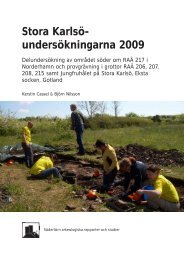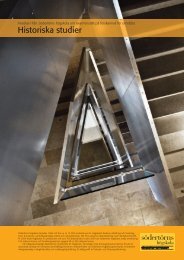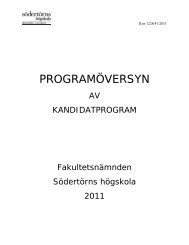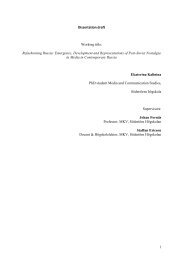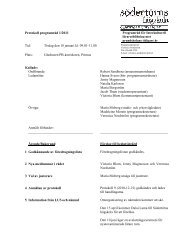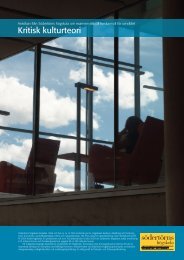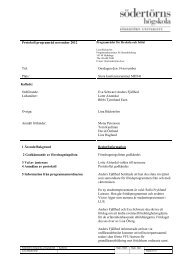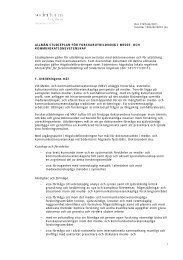CIVIL SOCIETY IN PEACEBUILDING - A Case Study Analysis of ...
CIVIL SOCIETY IN PEACEBUILDING - A Case Study Analysis of ...
CIVIL SOCIETY IN PEACEBUILDING - A Case Study Analysis of ...
Create successful ePaper yourself
Turn your PDF publications into a flip-book with our unique Google optimized e-Paper software.
economic and social networks. A minimal state leads to bigger roles for the CSOs to play but in Sudan,this typical aspect leads the CSOs more roles to play but in a less smaller space to work in, by theabsence <strong>of</strong> legal liberties. The third and terminal factor is the dichotomy between the traditional civilsociety and modern civil society where modern civil society organizations are situated in the centre,urban areas and the traditional ones in sparse rural areas. There are also many other factors that can beadded to this but by considering these three factors when learning about CSOs in Sudan, one canunderstand how CSOs can play a role in peacebuilding. Regarding the role played by the CSOs in peacein Sudan, in consideration <strong>of</strong> CSOs position out <strong>of</strong> the state, the market, and the military alliance, andtogether with the communities, the diversity and pr<strong>of</strong>essionalism that they hold, they are agents byexcellence for peacebuilding. To apply their function in peace negotiations and agreements, CSOs inSudan initiated peace talks even before the government took initiative (Sriram 2003:283). There aremany examples <strong>of</strong> initiatives taken before the Sudanese government and one example is the role <strong>of</strong> theUniversity <strong>of</strong> Khartoum staff union, which was considered to be the first initiative talks where actorsfrom the north and the south in 1983 tried to negotiate before the second round <strong>of</strong> the civil war in Sudan(Johnson 2003:176). Other CSOs initiatives also came from different organizations like the Trade unionAssociation, Sudan First Association, Nadwat al Amid, Al Afad and Womens Peace Networks. TheseCSOs initiated peace talks but were <strong>of</strong>ten excluded from the formal agreements. They played however avery good role in awareness raising, building the culture <strong>of</strong> peace, co-existence and unification <strong>of</strong>families and refugee-mobilization.9.2 Peacebuilding initiativesPeacebuilding initiatives in Sudan have been conducted at the top-level before 1980 with theAddis Ababa Agreement, however between the 1980s and 2001, no specific peacebuilding initiativeswere conducted at the top-level. Important peacebuilding elements like communication, trust andrelationship building that were present in several negotiation processes were not so heavily weighted atthe end as negotiations <strong>of</strong>ten failed. The importance <strong>of</strong> good and non-partial negotiators was crucial forthe two actors. In the case <strong>of</strong> Sudan the biggest negotiation process that have had a significant impact onthe top level has been the IGAD (Intergovernmental Authority on Development) process which led tothe signing <strong>of</strong> the CPA. It started out as a regional initiative in 1994 then called IGADD(Intergovernmental Authority on Drought and Development), which led to Declaration <strong>of</strong> Principles(IGAD 1994). The IGAD process consisted <strong>of</strong> several peace talks in several places though the initiativestarted out in 1994 the process did not move forward until the year <strong>of</strong> 2002. Relationship building23



